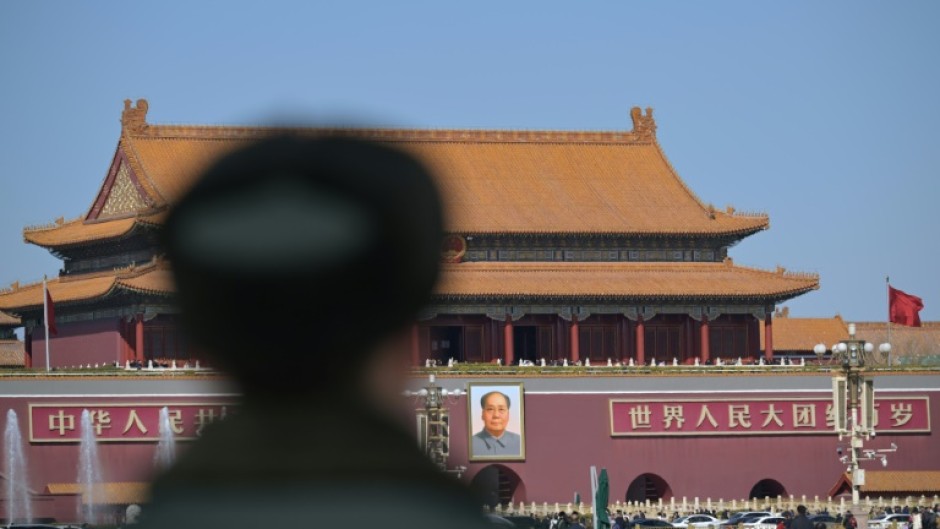BEIJING - China's annual political conclave kicks off in Beijing on Monday, with officials saying the flagging economy and youth unemployment are of "great concern" as they lay out plans for the coming year.
Armed police and public security workers are ubiquitous on Beijing streets as thousands of delegates arrive for the beginning of the annual "Two Sessions" gatherings.
Proceedings kick off Monday at 3:00 pm (0700 GMT) with the opening ceremony of the Chinese People's Political Consultative Conference (CPPCC) -- attended by President Xi Jinping and other party top brass -- which will last until Sunday, March 10.
At a press conference on Sunday, CPPCC spokesperson Liu Jieyi said that "economic topics are of great concern" to the body's more than two thousand members.
So, too, was "the employment of young people, especially fresh graduates", he said, with youth unemployment officially at around 15 percent at the end of 2023, after the Statistics Bureau adjusted its calculation methods.
Monday's CPPCC is relatively low-stakes compared to the near-simultaneous gathering of the country's legislature, the National People's Congress (NPC).
The NPC begins on Tuesday and runs until March 11, spokesperson Lou Qinjian told a press conference on Monday.
The meetings are not expected to see the unveiling of big-ticket bailouts that experts say are needed to stimulate China's economy, which last year posted some of its lowest growth in decades.
- Focus on economy -
But Lou on Monday struck a bullish tone, saying Beijing's leaders had "ample confidence" that the economy would rebound.
"China has more favourable conditions than challenges in its economic development," he insisted.
"The underlying trend of a rebound in the economy and long-term growth remains unchanged," he said.
But, he added, Premier Li Qiang would not be holding a press conference at the end of the NPC, in a break with decades-long tradition.
Li had used the briefing last year to warn that Beijing's modest growth goals would be "no easy task".
China is also set to double down on national security, with analysts expecting it to increase its military budget, second only to the United States.
Beijing revised a law dramatically expanding its definition of espionage last year and conducted raids on a string of big-name consulting, research and due diligence firms.
The legislature's top body also approved a broad and vaguely worded revision to the country's state secrets law in the run-up to the NPC.
Lynette Ong, a professor at the University of Toronto, told AFP there would "be continued emphasis on security".
"I don't expect any major policy change such as important structural reforms that will change the course of economic trajectory," she added.
On paper, the NPC wields little actual power.
All major decisions will have been made weeks before in closed-door meetings of the Communist Party, far from the international media's cameras.
But the topics that are up for discussion and the tone of the speeches allow for key insights into what's keeping China's rulers up at night, analysts say.
"Balancing security with the need to keep the economy ticking over while other issues are worked out is at the centre of policymaker's minds," said Diana Choyleva, chief economist at Enodo Economics.

